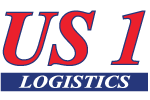Sample Scripts for Freight Agent Training
If you want to be a successful freight agent or broker agent it is time to stop reading and get to work on those phones. That is what this article is all about. If you are not a freight agent but are interested in becoming freight agent then this is what your sales day will be like.
Get on those phones and become a top freight agent or a top brokerage agent.
Overview:
What is the desired end result of prospecting scripts (other than getting freight!).
- Finding the point of contact for transportation.
- Retrieving their email address.
- Find out what their transportation needs are. (van, flatbed, reefer, intermodal, ltl, etc.)
- Getting lanes to quote.
- Getting the customer to offer us freight.
- Duplicating the process 500 times a week.
[The New Psychology of a Cold Call: Tips for Successful Cold Calls]
When speaking to the point person:
Introduce yourself.
Good morning/afternoon, this is ________ with “xyz company”, how are you today? (how is the weather, something like this to break the ice. Try and get the name of the person who you are speaking to. Use their name when you speak to them. People like to hear there names and it shows you care.)
More aggressive introduction.
Good morning/afternoon, this is _____ with “xyz company”, I was wondering if you were the person I needed to speak with if I could save you 10% to 20% on your transportation cost? (You do not have to focus on price. You can also focus on service)
-or-
Good morning/afternoon, this is ______ with “xyz company”, we have a logistics solution that can remove all the capacity related work from your transportation department, are you the right person to speak with about that?
CAUTION: Do not let yourself get into a habit of negotiating on price. We want to negotiate based on service. Negotiating on price might lead to more freight in the short-term, however it may be freight we cannot cover or at substantially lower margins. Sometimes it is OK to do that to get our foot in the door, just do not make it the number one tool in your tool box.
The bottom line is you are going to be calling a lot of people, practice and experiment. Find what works best for you and use it. In time you will learn to read the personality of the person on the other line and choose the best approach.
Possible bullet points for the conversation:
- Do you ship to the Northeast? Southeast? Midwest?
- What are your toughest lanes?
- Do you ever get last-minute shipments?
- Do you have any lanes I can quote right now?
- Do you have any heavy haul or over dimensional shipments?
- Do you ship any intermodal? Have you ever considered moving your longer haul lanes using intermodal?
- Can we email you some information on our company.
- We can we follow up with you again?
What type of freight are we looking for?
- Pretty much anything if you are a broker agent. If you are a capacity freight agent then focus on the type of freight you move.
- If it will fit into a 48′ or 53′ van.
- 48′ or 53′ refrigerated trailers.
- 48′ or 53′ flatbed
- Overdimentional freight
- Intermodal – Always ask about Intermodal if the company you are with has intermodal options.
Want to have a better idea how Cold Calls work? CLICK HERE for our new book The New Psychology of a Cold Call – Tips for Successful Cold Calls
Buffers.
When making a cold call, you will frequently have to deal with a buffer. This could be a secretary, a switch  board operator, receptionist or an assistant. Many times, their job is to keep you from the decision maker. You need to immediately get the buffer on your side.
board operator, receptionist or an assistant. Many times, their job is to keep you from the decision maker. You need to immediately get the buffer on your side.
Five steps to working with the buffer:
- Identify yourself and your company. (This is a professional courtesy)
- Get the buffers name and make a coach of this person.
- Ask for help. This way the buffer feels they are in charge.
- Always expect to be challenged and be prepared to present a viable reason for talking to the decision maker.
- “The reason I want to speak to ______ is our company has a program which can reduce your transportation costs, reduce your customer complaints relating to transportation and reduce the overall workload in your transportation department.”
- Thank the buffer for their assistance, make a special note and write down their name for future use.
When talking on the phone always use the others person’s name. People like to hear their name and it shows you are listening to them.
Cold call example #1:
- Hello, my name is _______ with “xyz company”, may I speak with the shipping or traffic manager?
- What is this in reference to?
- We are a logistics (or trucking) company and I would like an opportunity to introduce myself and the “xyz company”
- One moment please.
- Hello, my name is _______. I am with “xyz company” and would like to take a moment of your time to discuss how we can assist you with your freight needs. Is this a good time?
- No, I am very busy right now.
- When would be a good time to call back? This will only take a moment.
- Call back tomorrow morning.
- OK, great thank you. If you do not mind, let me take a moment to make sure I have all your information correct: [Verify their name (and spelling), title, email, and phone number]
- Thank you, I will call you back on _____ [day] at _____ [time]. In the meantime, I will email you some information about our company.
Cold call example #2:
- Hello, my name is ______ with “xyz company”. May I have the name of the person who makes your transportation decisions? (other questions might be: Who decides carrier selection? Who is the corporate traffic manager? Who is in charge of the transportation department? Who makes policy decisions on transportation?)
- Yes, that is __________.
- Thank you (use the receptionist’s name if you know it), do you mind transferring me to them?
- Yes, please hold.
- [from here see cold call #1]
Cold call example #3:
- Hello, my name is ______ with “xyz company”. I was calling about your plant in Atlanta, GA. We currently have 4-6 trucks weekly delivering to the Atlanta area and I was wondering if you had any outgoing freight that we could help you with?
Cold call example #4:
- Hello, this is _______ with “xyz company”. Do you have any available freight out of your Birmingham, AL distribution center?
Cold call example #5:
- Hello, this is _______ with “xyz company”. Congratulations on your merger with _____, has this created any additional shipping needs for your Nashville, TN facility? Has this changed your bidding process?
Cold call example #6:
- Hello, this is _____ with “xyz company”, I was wondering how your product was shipped from your Memphis, TN location?
Follow up call:
- Hello, this is _________. May I speak with ______
- Please hold.
- Hello ___________ [their name], this is _____________ with “xyz company”, how are you doing today?
- I was calling you back to follow up on our conversation from _______ [day]. Have you had a chance to review the information I sent you? [if you sent something].
- If they answer no go over our company information and resend to them. If they answer yes, ask them if they have any questions.
- As you can see “xyz company”is a full service 3rd party logistics provider (or trucking company). We offer a full range of services from single LTL, truckload and intermodal moves to multiple shipments from and to multiple locations. We specialize in helping you to cover difficult lanes and controlling your freight costs. Do you have either of these issues?
- Wait for their response and answer accordingly. Always end the call by asking for some commitment on their part.
- I would appreciate the opportunity to help you with your transportation needs. Do you have anything I could help you with today?
Questions you can add to your personal script:
- How often do you ship by truck and/or rail?
- What is the average weight of your shipments?
- How many shipments do you have daily?
- What are your major markets?
- What commodities do you ship?
- Do you have any special handling requirements?
- What transportation companies are you presently using and how did you select them?
- Are your current transportation/logistics companies meeting your expectations?
- What criteria do you use to select a transportation/logistics company?
- What do you consider a competitive price level? (need to identify a lane first)
Over time, you should develop your own scripts in order to be a successful freight broker agent or a capacity freight agent. These are just starting points to keep you from staring at the phone wondering what to do next.
As a successful (or potentially successful) freight agent you can use these to get you off your *** and started making calls. No more excuses, get to work on those phones.
There are many trucking companies looking agents out there and there are lots of trucking companies agent programs out there. Most have to their good and bad points.
We prefer transportation companies or logistics companies that give their agents flexibility and room to grow.



Thank you for this information. It will be very helpful. Are there any companies I should register with as a freight broker that will help my brokerage be successful? I have also been researching social networking events for freight brokers but not sure how I need to search for these events in the charlotte,nc area? do you have any ideas
Not really, about the only thing you could do is advertise on Internet Truckstop or DAT. This can be expensive, not sure what your advertising budget is.
How can someone get hired as a freight broker agent without experience or book of business?
Depends some on your previous transportation knowledge. If you have zero transportation experience, no freight broker experience and no book of business it will be very difficult. I think your best course of action would be a freight broker school or to see if you can get hired by an agent that does brokerage. You could also look for entry level employment with an logistics company that has a training program. Many of the big ones do but you will probably have to sign a non compete which will limit your future options.
Great info! Will most def be using this during my journey of building my book of business.
How can I get a shippers list for freight broker
You can get some free resources by searching the internet. You will also come across the paid services which can be expensive. I have used: https://www.thomasnet.com/ in the past. Not as good as some of the paid services but at least it is free.